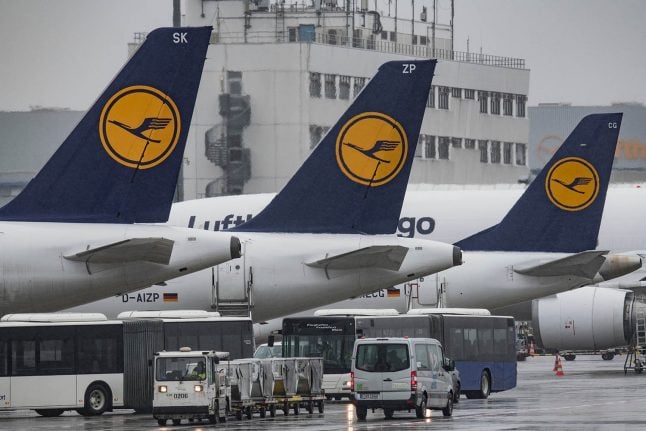“Based on further demand development, capacity will be reduced by up to 50 percent in the coming weeks,” Lufthansa said in a statement, after announcing Monday it would cut its flight plan by 25 percent.
READ ALSO: Lufthansa to cut quarter of flights due to coronavirus
The carrier's shares were down slightly in afternoon trading in Frankfurt, shedding 0.8 percent to trade at €11.41, but still outperforming the overall blue-chip DAX index, which was down 3.1 percent.
Lufthansa with subsidiaries like Eurowings, Swiss and Austrian Airlines has announced deep cuts in its timetable this week as the effect of the COVID-19 disease began to bite.
READ ALSO: Coronavirus: Should you cancel your trip to or from Germany?
It will not fly routes to China and Iran until late April, while Israeli
restrictions on non-resident arrivals from some EU countries prompted it to cut flights to the Jewish state until March 28th.
Capacity equivalent to 150 planes was already grounded, 25 of them from the long-haul fleet.
On Thursday, Lufthansa said its previously-announced 25-percent capacity cut would mean 7,100 flight cancellations around Europe through to the end of its winter timetable on March 28th.
Many of the cancellations will fall on high-frequency German domestic
services to cities like Berlin and Hamburg from the group's Frankfurt and Munich hubs.
Meanwhile, “a second focus of the route cancellations” was Italy, with
cities including Milan, Venice and Rome affected, and other countries around Europe also hit.
The group has also instituted a hiring freeze and is considering slashing workers' hours.
“It is not yet possible to estimate the impact on earnings” from the virus
measures, Lufthansa had said Thursday.
The International Air Transport Association (IATA) had also warned Thursday the total revenue impact on the industry could be in the range of $63-$100 billion.



 Please whitelist us to continue reading.
Please whitelist us to continue reading.
Member comments